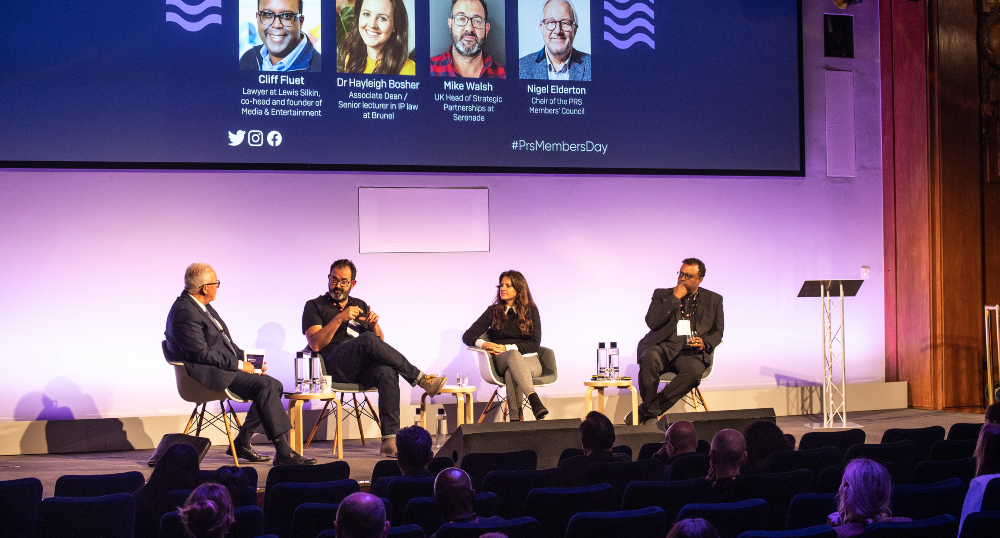Here, he demystifies some of the legal definitions songwriters and composers are faced with when entering into publishing contracts...
In the context of music publishing contracts, legal language is often misused and different terminology can be applied interchangeably.
I remember a client of mine once got in touch to let me know that an agent had approached them requesting a non-exclusive licence to use one of their songs in a film. However, when the contract came through to me, it was in fact an exclusive assignment of all songs written by them for the next five years!
This kind of misunderstanding leads to confusion and, in some instances, serious disputes over ownership, money and control.
So what are the key terms in a music publishing contract and what do they mean? First of all, it is essential to understand what a music publishing contract is and the role played by a music publisher.
Music publishing contracts are used to set out the legal relationship between writers and music publishers.
They deal with the rights in musical and lyrical copyright works, which are separate from the rights in sound recordings (the subject of recording contracts).
Publishing contracts may relate to just one work, or they can cover all works created during a certain period of time.
The role of the music publisher is to earn money by exploiting the rights in the works on behalf of the writers.
They do this by issuing licences to people who want to use these rights to, for example, synchronise the works with moving images such as adverts, or give public performances of the works.
Grant of rights
For a music publisher to fulfil its role, the writer will assign their rights in specific works to the publisher. The word assign is significant here as it means the transfer of ownership from writer to publisher. This is distinct from the word licence. A licence does not transfer ownership but merely grants a person the right to do certain things as determined by the terms of a licence contract.
When considering the grant of rights, it is crucial to identify which works are being assigned to the publisher. In most instances, the publisher will require the writer to assign all their rights in: 1) all their existing works which have not already been assigned and 2) all works written by the writer during a specified contractual period, in both cases subject to the performing rights assigned to PRS for Music. This is the basis of an ‘exclusive’ publishing contract. It is possible to assign rights in specific works, or even to assign specific rights in specific works, for example, to issue mechanical licences but not synchronisation licences.
The grant of rights should be considered carefully. Are certain works to be excluded, for example, those written for film or side projects? It is also important to assess the strength and resources of the publisher. There is little point in assigning all rights in all works to a publisher who is not willing and/or able to make use of them.
Territory and term
Territory refers to the geographical area within which the rights are granted. This could be limited to specified countries or it could be worldwide – indeed publishing contracts occasionally define the territory as being the universe, which always strikes me as a little ambitious! Nonetheless, the writer should at least consider whether the publisher has a sufficient set-up in all the countries which are included in the territory.
The term of the contract is the period during which works written by the writer are assigned to the publisher. Publishers will usually insist on an initial period followed by a series of option periods to extend the initial period at their discretion. Each period typically lasts for twelve months and the decision by the publisher to exercise its options will generally depend on the success of the writer during the preceding period. The publisher will also demand that the writer fulfils a minimum commitment in each period, which is an obligation on the part of the writer to create a specified number of works.
Clearly, it is in the interests of the writer to be able to get out of a contract if the publisher is not doing a good job or a better deal comes along. The clauses in the contract concerning the term, as well as the events which allow the writer to terminate the contract early, therefore require attention and negotiation.
Rights period
The rights period is the length of time that the rights are assigned by the writer to the publisher. It is common for the rights period to last for the term of the contract plus a period of time after the contract comes to an end (known as the retention period). The length of the retention period is a matter for negotiation between the writer and publisher but it is typically 15 years.
Advances
Advances are a pre-payment of the writer’s share of income generated by the exploitation of the rights assigned to the publisher. The advances payable by the publisher in relation to option periods are often calculated on what is known as a min/max formula. This is based on the income received during the preceding contract period. There is a huge amount of variation in the level of advances in publishing contracts, which ultimately comes down to the bargaining position of the writer and the publisher. As a writer, it is best to adopt a pragmatic view and think about the level of advance necessary for the related contract period when taken together with any other income being made, for example, under a recording contract or from live performances.
Royalties
Royalties are payments made by the publisher to the writer in respect of income after deduction of the publisher’s fee. Royalties are first used to recoup the publishing advance and are set at different rates depending on the way that the rights have been used, for example, the royalty rate for synchronisation licences is likely to be different to that for public performance where the writer’s PRS for Music income is taken into account.
Royalties are calculated either at source (essentially meaning on the basis of all money received by the publisher or any sub-publishers without deduction) or on net receipts (meaning on the basis of money actually received by the publisher after any third parties have had their cut).
It is crucial to determine how royalties are to be calculated and, if it is to be on net receipts, that there is a cap on deductions. The writer must also pay attention to the accounting provisions to ensure that the publisher is required to make regular payments and that the writer can audit the publisher’s accounts if they suspect that the publisher is not accounting properly.
Summary
The increasing success of music publishers in recent years highlights that the rights in musical and lyrical copyright works are extremely valuable. It is therefore essential that music publishing contracts are understood by both the writer and the publisher, and that they reflect the commercial terms which have been agreed between them. Contrary to popular belief, there really is no such thing as a standard contract and it is definitely worth taking specialist advice.
www.LawBlacks.com
www.twitter.com/PeteLawBlacks




